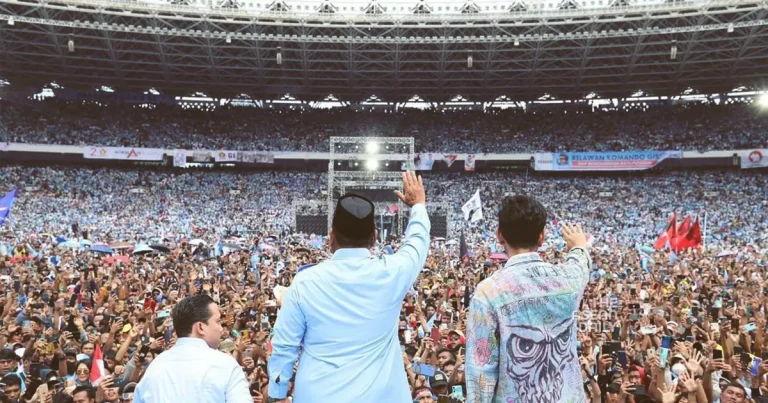11-2-2024 (JAKARTA) Indonesia’s capital city, Jakarta, is gearing up for a highly anticipated presidential election, with a former general being tipped as the frontrunner. The election, scheduled for February 14, 2024, will determine the leader of Southeast Asia’s largest economy and the third-largest democracy in the world.
Defense Minister Prabowo Subianto has emerged as the clear favorite in the race, capitalizing on a campaign that combines nationalist rhetoric with promises to continue the successful policies of the outgoing leader, Joko Widodo. Subianto, who previously lost to Widodo in the 2014 and 2019 elections, has managed to rehabilitate his image and gain significant popularity.
Although Widodo is constitutionally barred from seeking a third term, his endorsement of Subianto has boosted the former general’s chances of victory. The defense chief and Widodo’s eldest son have joined forces as running mates, forming a powerful alliance within Indonesian politics.
Opinion polls project Subianto to secure a majority of votes from the nearly 205 million eligible Indonesian voters. The electorate will cast their ballots at over 800,000 polling stations scattered across the vast archipelago, which is known for its volcanic landscapes.
Supporters of Subianto cite his persistence and genuine concern for the people as reasons for their backing. Wilhelmina, a 51-year-old housewife in Jakarta, expressed her admiration for the candidate, stating, “What do I like? His persistence. For me, he cares about the people.”
Challenging Subianto in a potential run-off vote if he fails to secure an outright majority are former Jakarta governor Anies Baswedan and former Central Java governor Ganjar Pranowo. However, neither candidate has managed to match the popularity and star power of the Subianto campaign.
Subianto’s reputation as a strongman, stemming from his background as a former special forces leader, has resonated with younger voters. His transformation into a “cuddly grandpa” persona, coupled with a strategic social media presence, has garnered support from a demographic that previously protested against him.
While Subianto has faced accusations from NGOs and former military superiors of ordering the abduction of democracy activists in the late 1990s, his ability to connect with younger voters seems to have outweighed concerns about his past. Wilhelmina, who participated in student protests against Subianto in the past, has chosen to forgive him, stating, “That figure was in the past.”
The outcome of the election is expected to reflect the success and popularity of Widodo’s administration. Subianto has pledged to continue the ambitious economic development and infrastructure-building programs initiated by his predecessor. Baswedan, on the other hand, has focused on criticizing the current government’s governance practices, while Pranowo has campaigned on promises of free internet for students and emphasized his humble background.
The election will serve as a referendum on Widodo and Subianto’s respective administrations, with voters deciding whether to maintain the continuity of Widodo’s policies or seek a new direction for the country.
Polling stations across Indonesia will open at 7:00 am local time on Wednesday, February 14, and close at 1:00 pm, with results from “quick counts” expected to provide an early indication of the winner. Official results are anticipated to be announced in March.
As Indonesia, a G20 economy, navigates its future, the new president will face the challenge of balancing relationships with major global powers, such as the United States and China. Subianto has positioned himself as committed to Indonesia’s non-aligned foreign policy while leaning toward the West due to his Western education. However, he has also voiced criticism of the European Union’s restrictions on deforestation-related products, accusing the bloc of double standards.
Critics have raised ethical concerns about Subianto’s human rights record, warning that his potential victory would result in another right-wing populist leader with a problematic past. Such concerns have also been directed at Widodo, as his support for Subianto and his son has raised fears of undermining democracy and fostering a political dynasty.
The role of the military in Indonesian politics remains significant, and Subianto, if elected, may not be as pliant toward his former boss, Widodo, as many anticipate. However, for many Indonesians, the election represents a choice between preserving the status quo or embracing change. Abdul Rosyid, a 20-year-old unemployed supporter of Subianto, summed up the sentiment, stating, “He will continue Jokowi’s programs. They are already good.”




